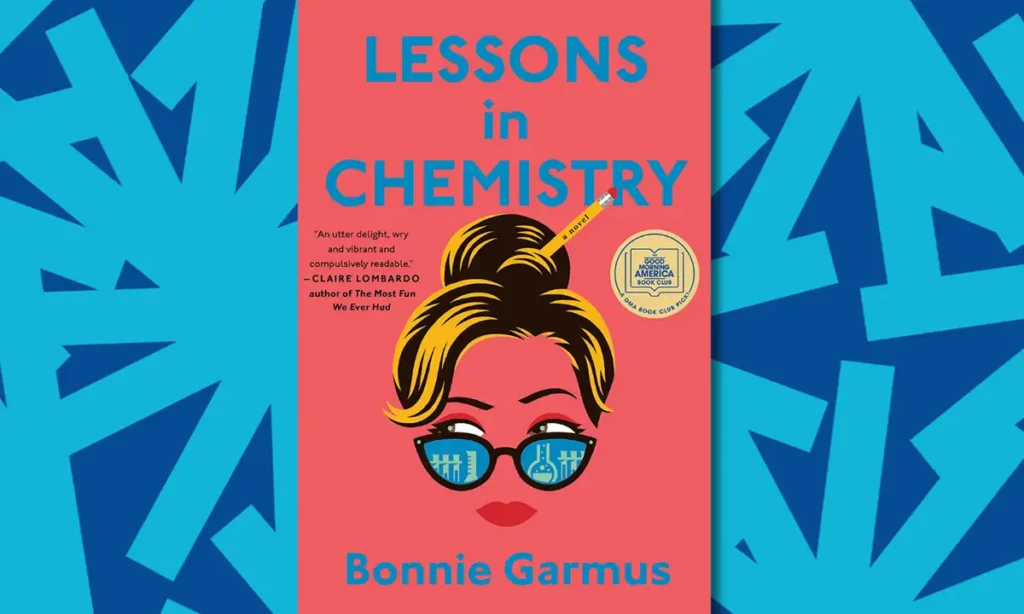Book Review of Bonnie Garmus: Lessons in Chemistry

As Bonnie Garmus points out in her debut novel, Lessons in Chemistry, gender stereotypes can be difficult to manage. This was especially true in the USA in the 1950s and ‘60s. Gamus’ novel is a coming-of-age story where her main character takes you through the complicated feelings surrounding love, personal growth, and pursuing your dreams.
The book begins by introducing you to Elizabeth Zott, a single mother and star of a popular cooking show known as “Supper at Six.” As she goes through the motions of being a TV show host, it’s clear that she’s not very happy about her role or where her life is. Supper at Six is geared towards the stereotypical “American housewife.” Quickly, you can pick up that Zott is in the wrong profession, with her wit, seriousness, and talent for chemistry constantly displayed.
As the plot opens up, readers learn why a bright scientist ended up hosting a cooking show in the first place. As the plot looks back to her days as a young chemistry student, you start to see the all-too-familiar patterns of social abuse and discrimination that women in STEM experienced in those days.
Throughout the book, it’s apparent how talented and determined she is. The unwavering pursuit of her passion makes her admirable from a reader’s standpoint. However, this same quality makes her a target for her male counterparts, women, and even her loved ones. Elizabeth goes through everything from misogyny and sexual violence to the theft of her beloved work.
Elizabeth continues to fight the conventions that discourage women from careers in science. What she goes through will resonate with anyone who has experienced prejudice, sexism, or toxic jealousy in their lives. Elizabeth, along with the other complex characters develops throughout the book as they are exposed to the pressures and horrors of society.
Fans of historical fiction will love Garmus’s immersive and realistic storytelling. Historical events give the story a vivid backdrop for Elizabeth’s experiences. All along Elizabeth’s journey, her society is changing. Civil and Women’s Rights become powerful themes. Scientific advancements as well are moving along fast and she confronts the feelings of seeing the world of science move along without her.
Just as you witness the effects of her depression, you start to see a change. Soon, Elizabeth’s platform as a TV host becomes her outlet to let the world know what she and millions of other women are capable of. As the character’s sometimes inexpressive personality begins a silent revolution, readers will immediately start to feel her momentum as a leader.
Through and through, Lessons in Chemistry paints the story of a character that is consistently labeled and put into a box, only to find an unexpected outlet for her wit and revolutionary spirit to take flight. Themes of perseverance, self-discovery, and defiance of societal expectations carry on throughout the book. Ultimately, Lessons in Chemistry is a must-read for anyone looking for a heartfelt tale of empowerment that depicts the beauty of staying true to yourself, no matter who is going against you.







Have your say